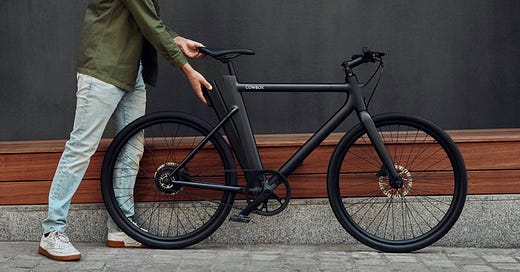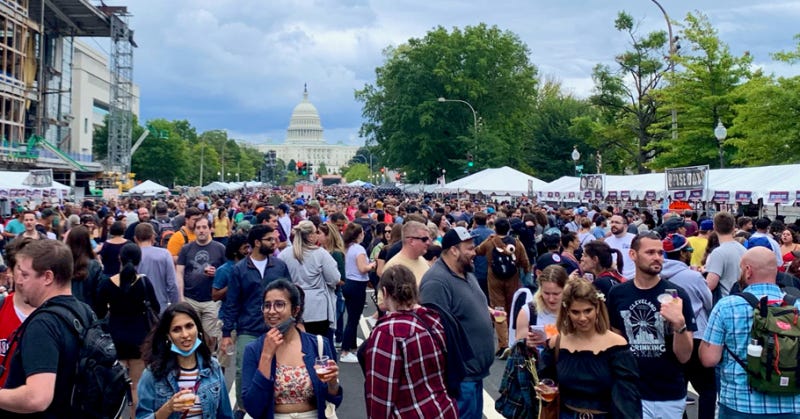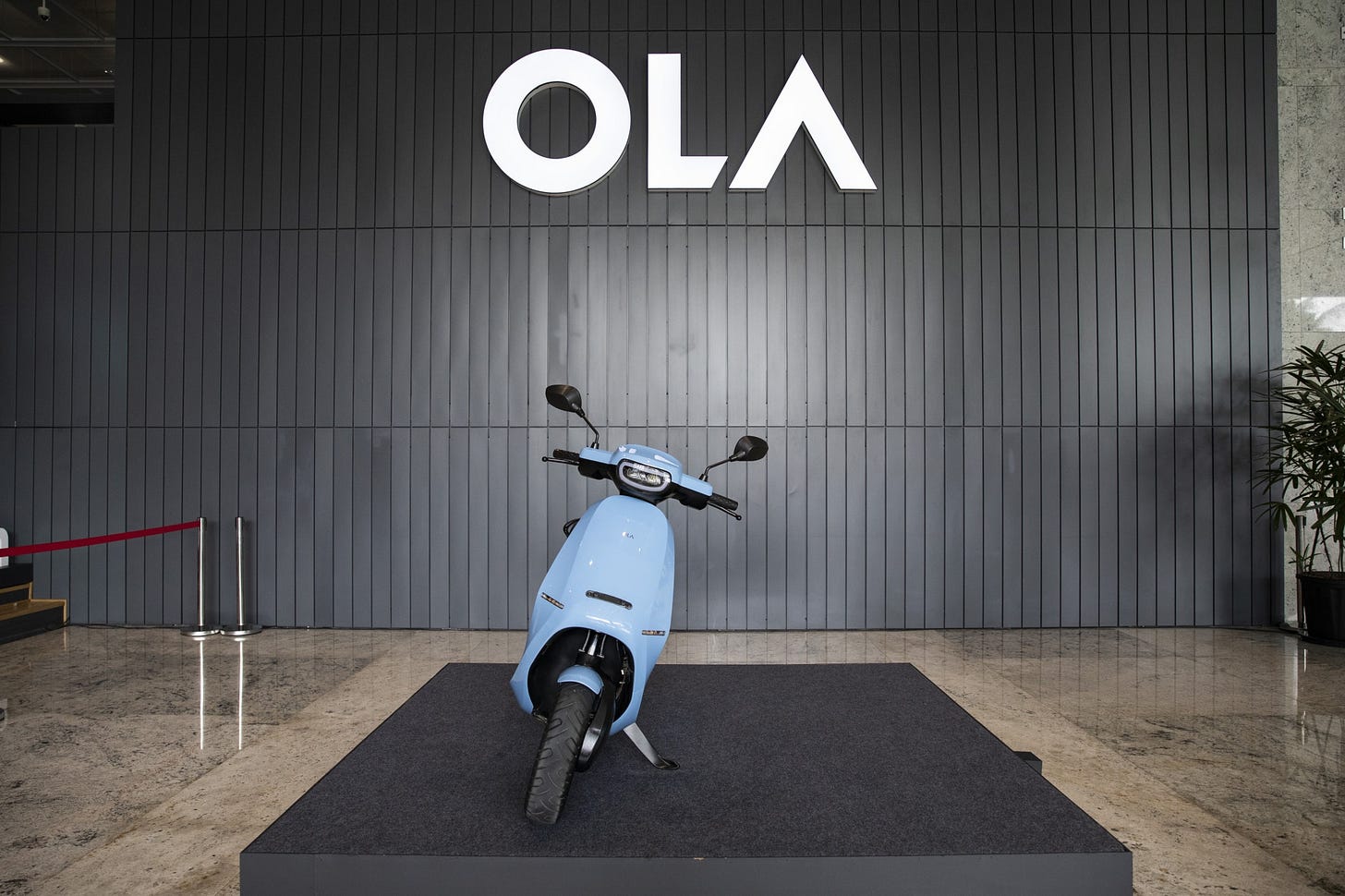🤠 Cowboy Says Profitability In Sight
Plus, Zypp scores funds from Gogoro, how Brexit hurt micromobility retailers, and eBike rebate updates from Maine to Oregon.
🚨 PSA - The Early-ish Bird special for Micromobility Europe expires this Friday (Feb 17th). Grab tickets for €300 before prices double, then join us in Amsterdam on June 8-9 for our most immersive conference yet.
Ride On!
We’re back with episode two of Ride On! Join us as we recap the past week in micromobility news, including Rivian eBike rumors, the explosive popularity of trikes, Dubai’s indoor bike superhighway, carbon-centric city planning, new bike subscription services, and more.
What You Need to Know Today
After hitting $45M in revenue in 2022, Belgium-based D2C eBike maker Cowboy predicts it will be profitable by this summer.
A prominent British micromobility retailer says Brexit has cost the company more than $200k a year.
An astounding 42% of Dutch adults already own a lightweight electric vehicle per a new report.
Electric bikes will outsell all cars in Europe by 2025, according to analysis by UP Partners.
Bike vouchers are sweeping the USA, from Portland, ME, to Portland, OR: Over in Maine, a new bill would make it so that electric bikes qualify for the cash incentives enjoyed by the electric car industry. Meanwhile in Oregon, a proposed electric bike rebate, which is good for up to $1,700 off select vehicles, coasted through its first legislative session.
… as studies have shown, electric bike incentives create more bikers, which in turn, makes biking safer. A virtuous cycle of cycling.
A new bill in California would allow the state to charge drivers more for owning heavy SUVs and trucks.
The latest episode of The Micromobility Podcast is an incredible mind meld between Kara Swisher and Horace Dediu about what big tech has gotten right and wrong about new mobility.
Who says there’s a funding drought? Not India. Bike Bazaar, a firm that specializes in two-wheeler financing in India, has raised $10M to expand deeper in rural areas.
Meanwhile Indian vehicle maker Simple Energy has netted $20M to ramp up production of its electric moped.
And Zypp, an Indian startup that offers an EV-as-a-service platform, has received a $25M investment led by Taiwanese battery-swapping company Gogoro. Zypp will use the cash to 20x the size of its bike fleet and expand to 30 cities by the end of 2025.
Banning cars from Washington D.C.’s Pennsylvania Avenue—aka America’s main street—would make the capitol safer for vulnerable road users and send a powerful message about America’s changing transportation priorities.
After speed limit of 20 mph was introduced on key London streets, collisions fell 25%.
MIT Media Lab is working on a self-driving “bike” (it has three wheels for balance, so really it’s a trike) that can be summoned on demand.
Congestion pricing is back on the table in Boston.
More than 40% of eBikers in China report using their phone while riding, according to a new study.
Ola Electric, one of the largest producers of electric mopeds in India, says it is on track to ship its first car in 2024, the first (?) automobile designed by a micromobility-native company.
On the other side of the spectrum, Polestar and Rivian admit that the transition to electric cars alone will not be enough to meet the emissions thresholds laid out in Paris Agreement… maybe that’s why the two EV makers are both rumored to be building bikes next.
Mazda’s CEO isn’t convinced that long-range EVs are the future either, arguing that consumers don’t need vehicles with 300+ miles of range when most daily trips are only a few miles.
Seems relevant: American cars are getting too big to fit into standard parking spots.
USDOT announced $800M in grants to more than 510 communities through its Safe Streets for All initiative. But safety grants are unlikely to succeed if American engineers don’t rethink “business as usual.”
Browse the best jobs in micromobility—and post your own—on our Jobs to Be Done board. Featured jobs:







